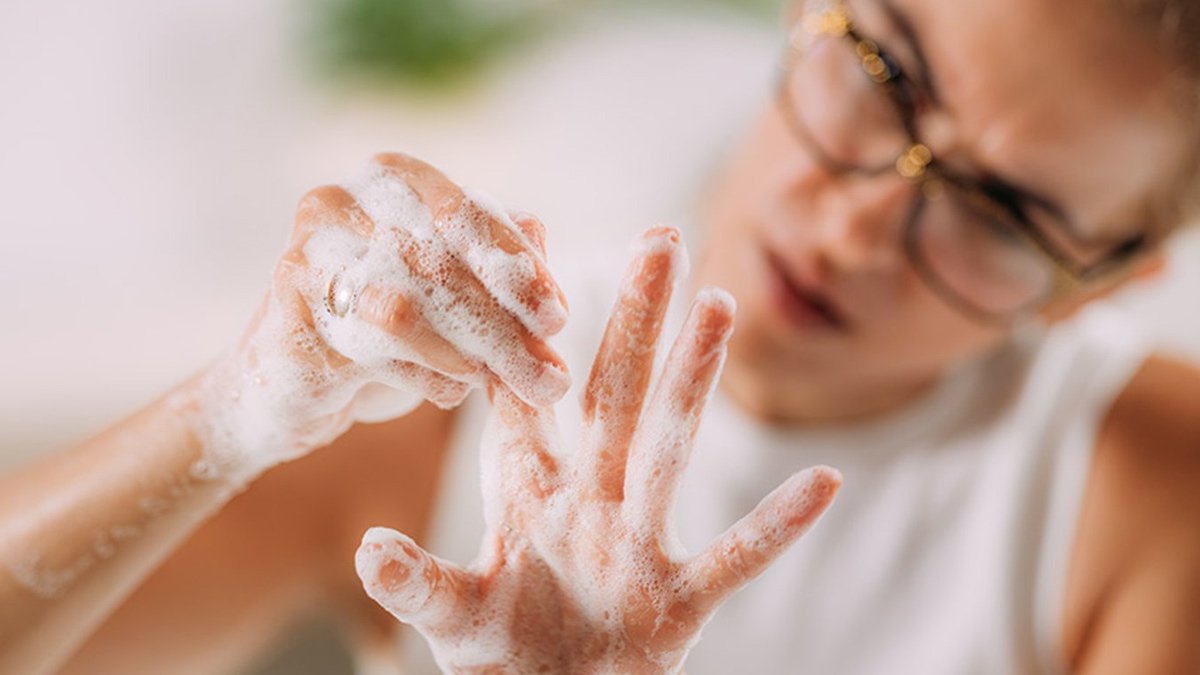
Kylie Jenner, a prominent figure in the fashion and beauty industry, has often been in the limelight for her entrepreneurial endeavours and personal life. However, her journey into motherhood unveiled a different facet of her personality. After welcoming her first child, Stormi Webster, Kylie’s approach to parenting revealed her intense fear of germs, often referred to as germaphobia. Her commitment to maintaining a germ-free environment for her daughter has been a topic of much discussion, reflecting both her protective instincts and the broader implications of germaphobia.
Table of Content:-
A New Mother's Vigilance
While many new mothers relish the opportunity to show off their newborns, Kylie Jenner opted for a more secluded approach. Prioritizing Stormi's health, she implemented stringent hygiene protocols for anyone wishing to visit her home. Visitors were required to wash their hands thoroughly and often, ensuring a minimal risk of germ exposure.
In 2018, an insider revealed to US Weekly that Kylie’s measures were driven by a desire to keep Stormi safe from potential harm. "Kylie just wants to keep her baby out of harm’s way. You have to go to her house to visit. She’s being very careful about keeping the baby healthy and indoors. She is devoted to keeping her little girl safe and happy in her private space," the source explained. This approach extended to maintaining a highly exclusive guest list that included only her closest family members and friends.

Understanding Germaphobia
Germaphobia, also known as mysophobia or verminophobia, is the fear of germs and microorganisms that can cause disease. For individuals like Kylie Jenner, this fear manifests in behaviours aimed at avoiding any potential contamination. Germaphobia is not merely a heightened sense of caution; it involves an excessive and often irrational fear that can significantly impact daily life.
Symptoms of Germaphobia
Germaphobia, like other specific phobias, triggers a range of emotional, psychological, and physical symptoms. These symptoms can be categorized into three main types:
Also Read: Widespread Panic's Jimmy Herring Diagnosed With Stage 1 Tonsil Cancer; Know All About The Condition
Emotional and Psychological Symptoms:
- Intense fear or terror of germs.
- Anxiety, worry, or nervousness about exposure to germs.
- Obsessive thoughts about germs leading to illness.
- Feelings of powerlessness over fear recognised as unreasonable.
Behavioural Symptoms:
- Avoidance of situations perceived to involve germ exposure.
- Excessive time spent thinking about or preparing for potential germ exposure.
- Seeking assistance to manage fear or situations involving germs.
- Difficulty functioning in daily activities due to fear of germs.
Physical Symptoms:
- Rapid heartbeat.
- Sweating or chills.
- Shortness of breath.
- Chest tightness or pain.
- Light-headedness.
- Muscle tension and restlessness.
Impact on Daily Life
For someone with germaphobia, the fear of germs can dominate their thoughts and actions, leading to a significant impact on their quality of life. This can include disruptions at home, work, or school due to the constant need to mitigate perceived germ threats. For children, this fear may manifest as tantrums, clinging to parents, or difficulty sleeping, further complicating their development and well-being.
Also Read: Elon Musk Backs J.K. Rowling's Thoughts On Gender Dysphoria; Know The Symptoms Of The Condition
From Fear to Disorder
In severe cases, germaphobia can escalate into obsessive-compulsive disorder (OCD), where the fear of germs leads to repetitive behaviours and rituals. These behaviours are aimed at reducing the anxiety associated with germs but can ultimately take over the individual's life.
Bottomline
Kylie Jenner's journey into motherhood, marked by her intense focus on maintaining a germ-free environment for Stormi, highlights the profound impact of germaphobia. Her efforts, while rooted in a desire to protect her child, also underscore the challenges faced by those who live with this phobia. Understanding the symptoms and implications of germaphobia is crucial in addressing and managing this condition, ensuring that those affected can lead healthier, more balanced lives.
Also watch this video
How we keep this article up to date:
We work with experts and keep a close eye on the latest in health and wellness. Whenever there is a new research or helpful information, we update our articles with accurate and useful advice.
Current Version